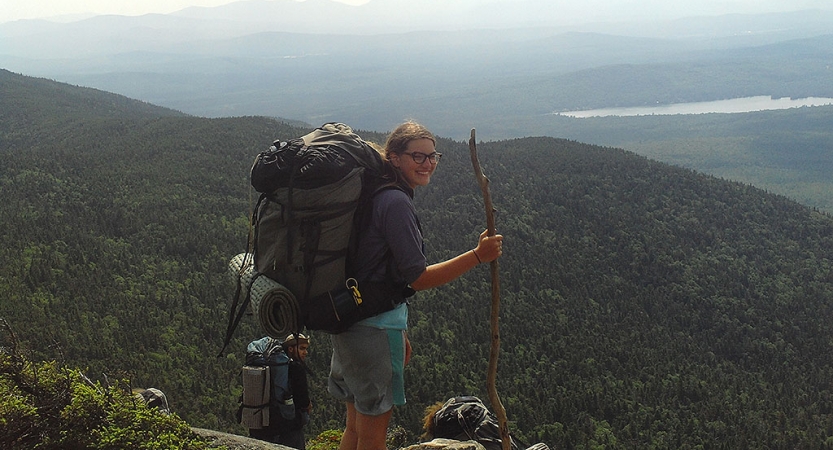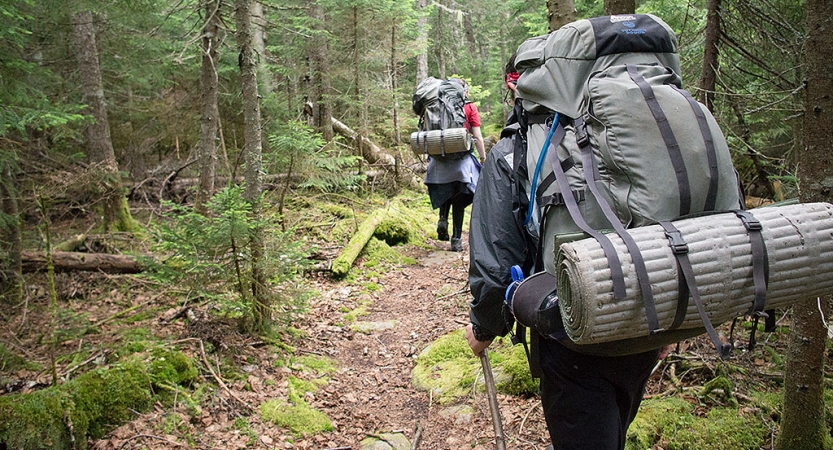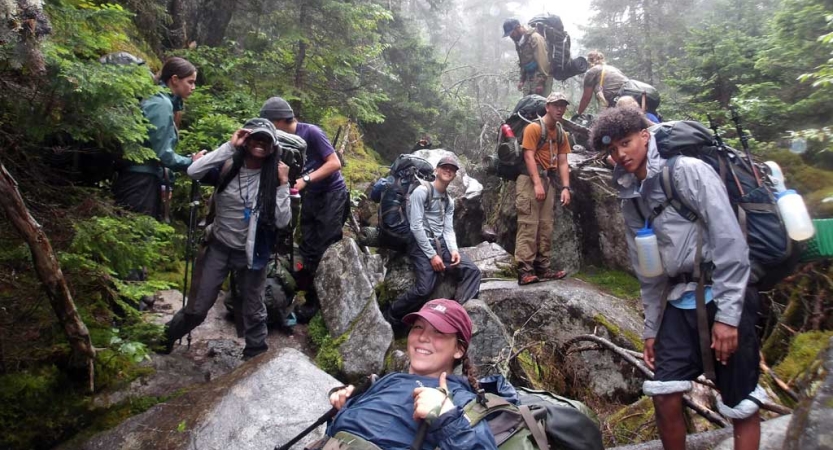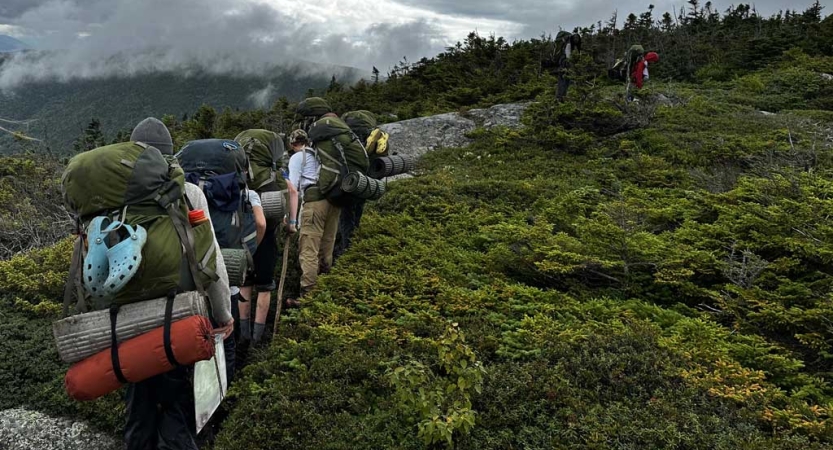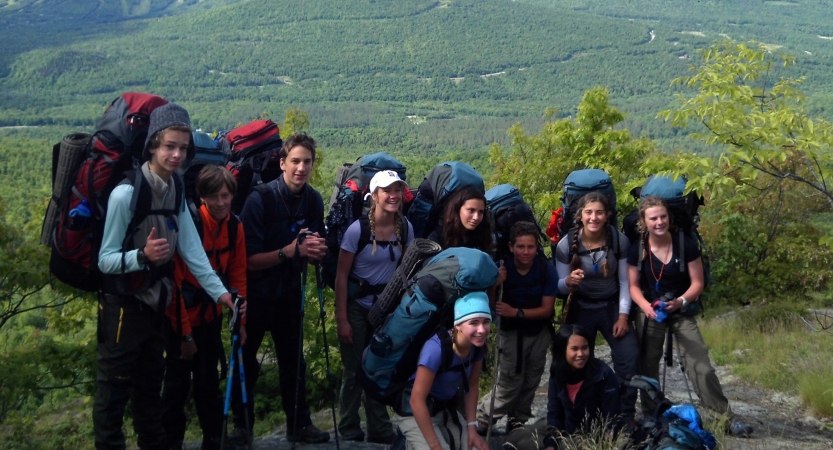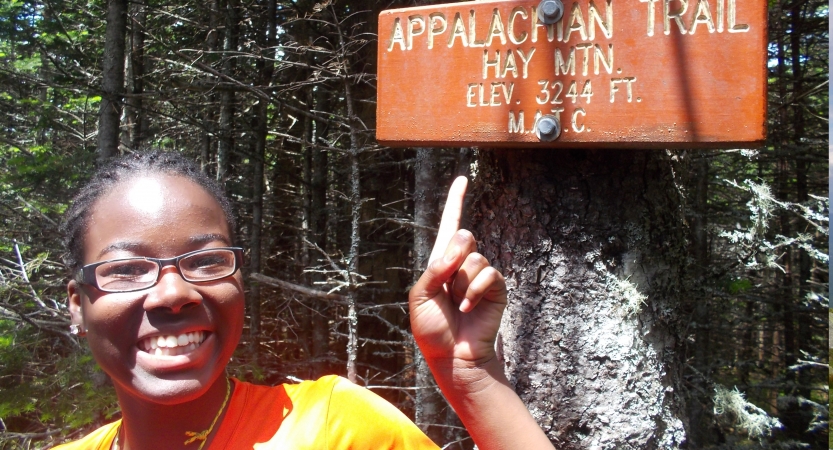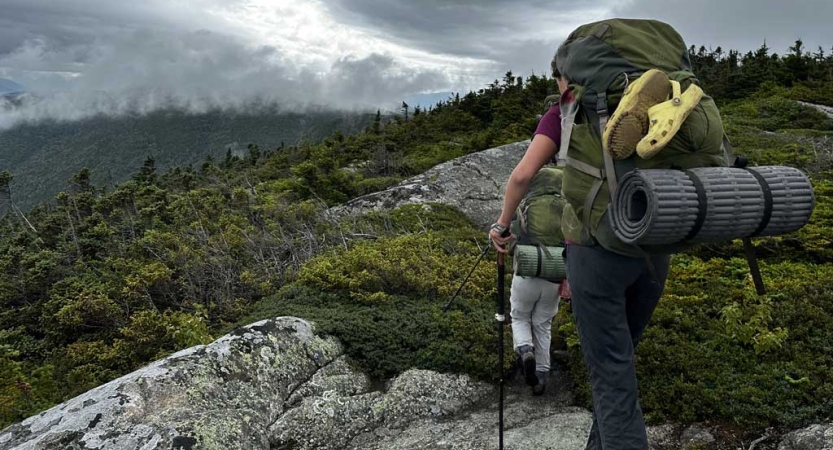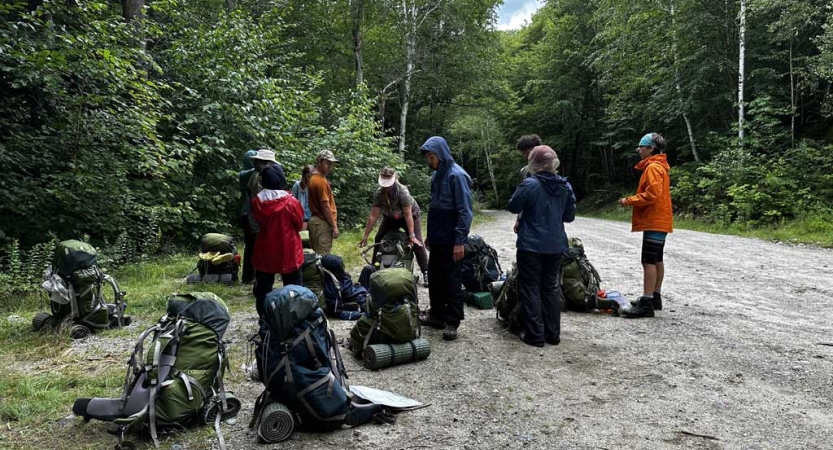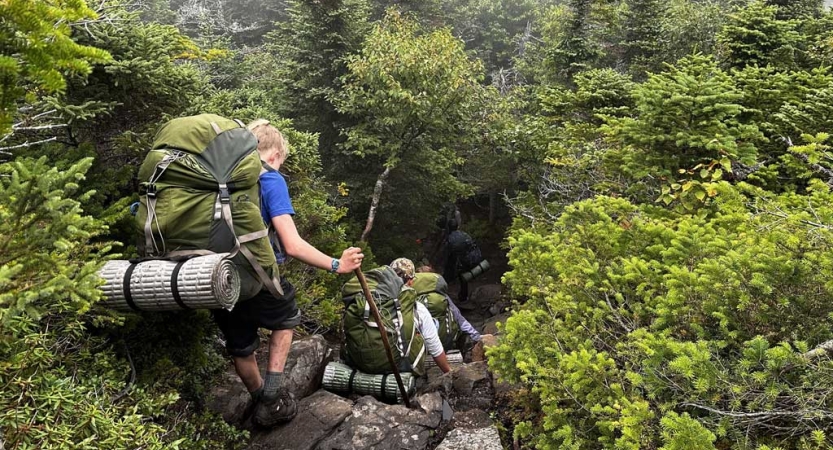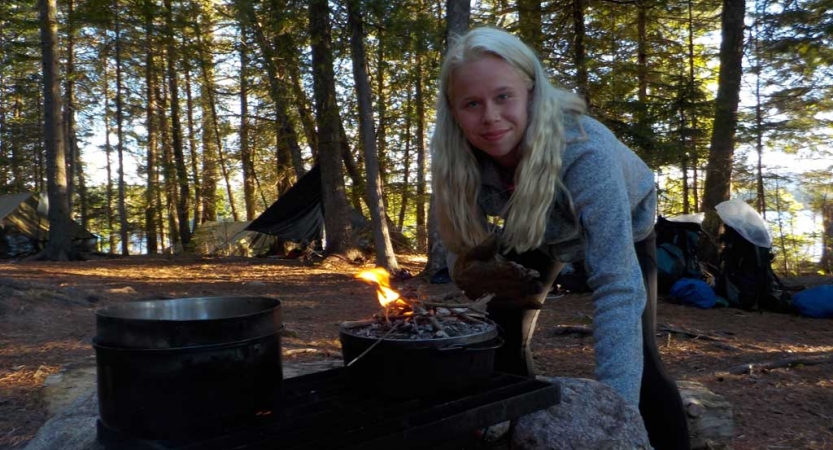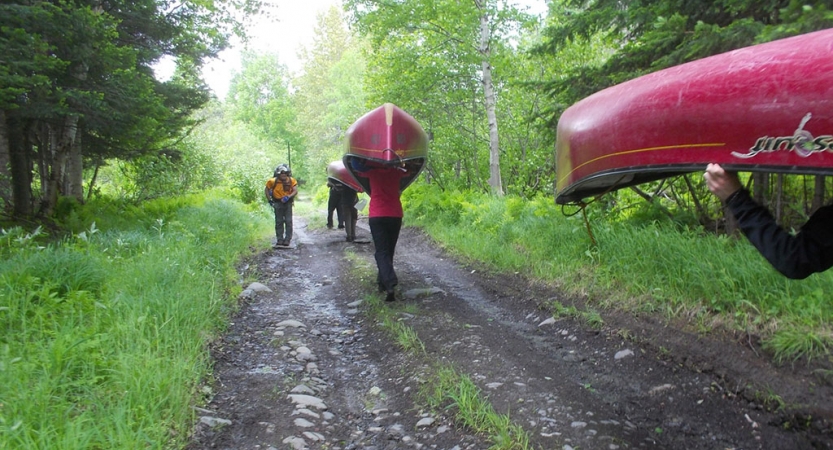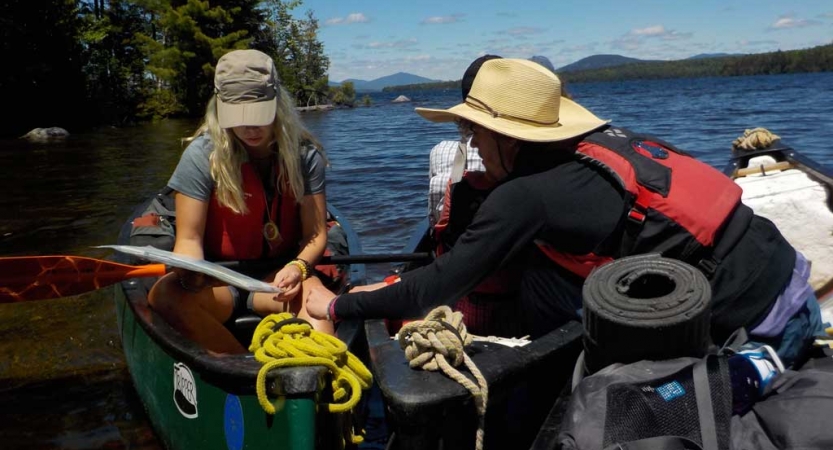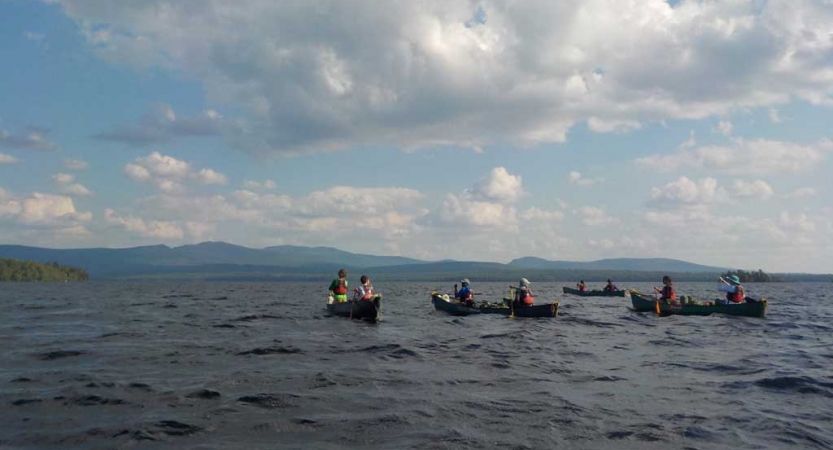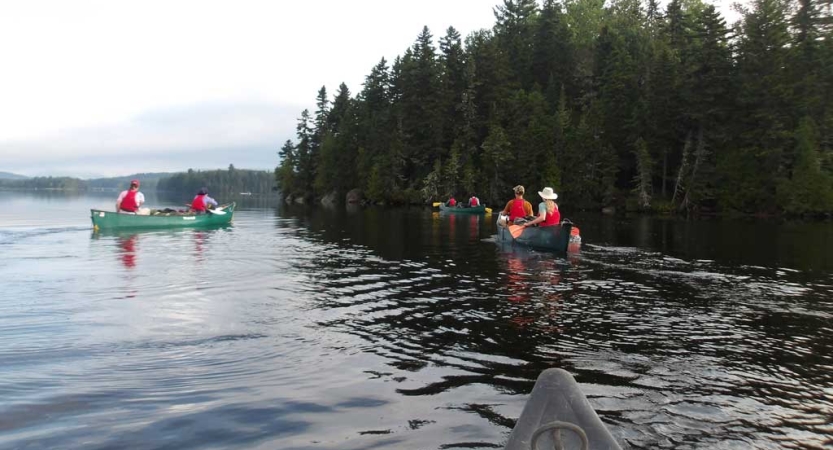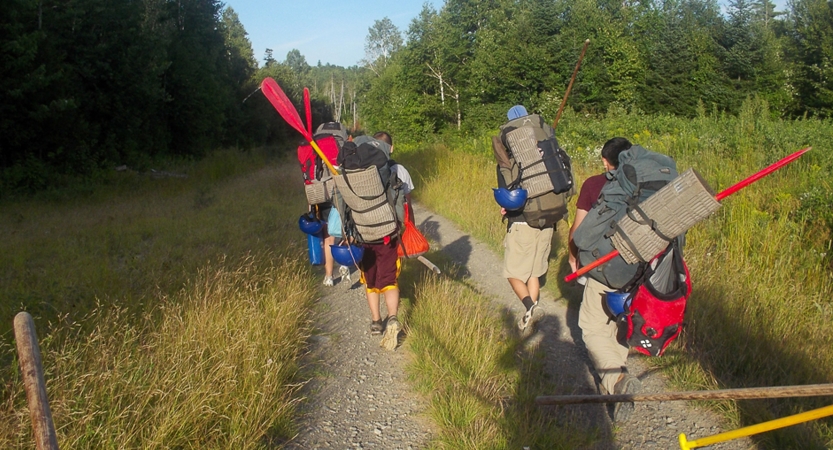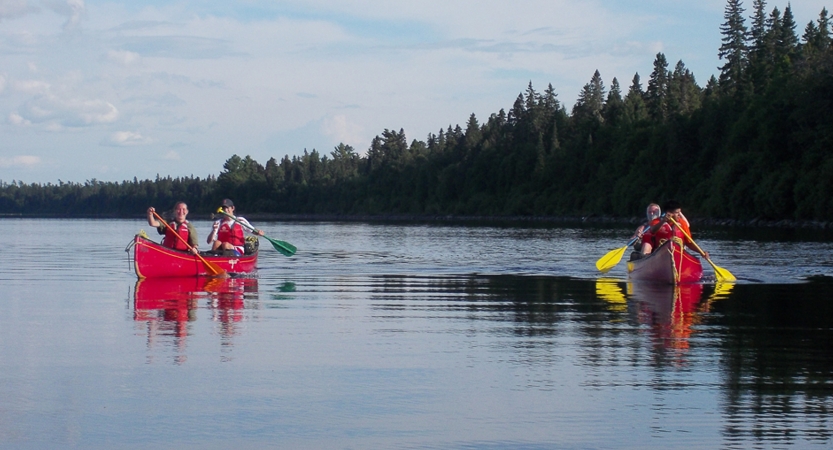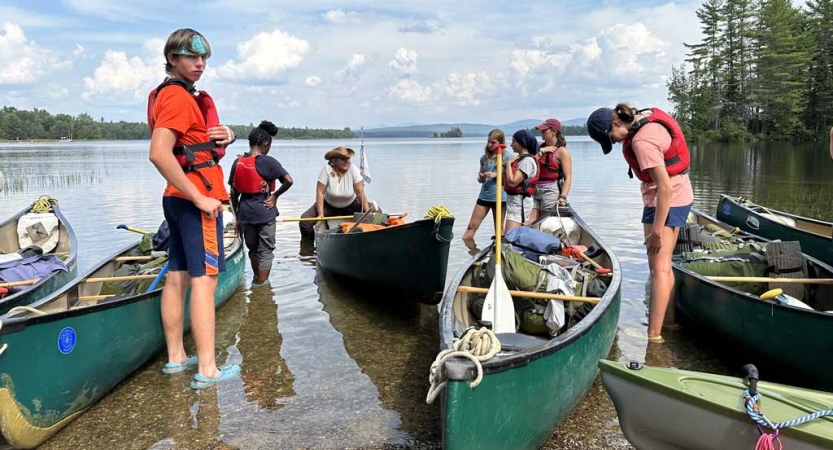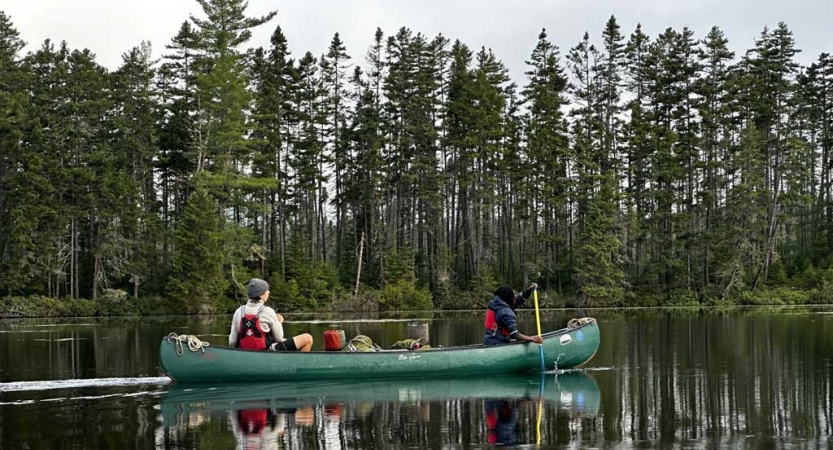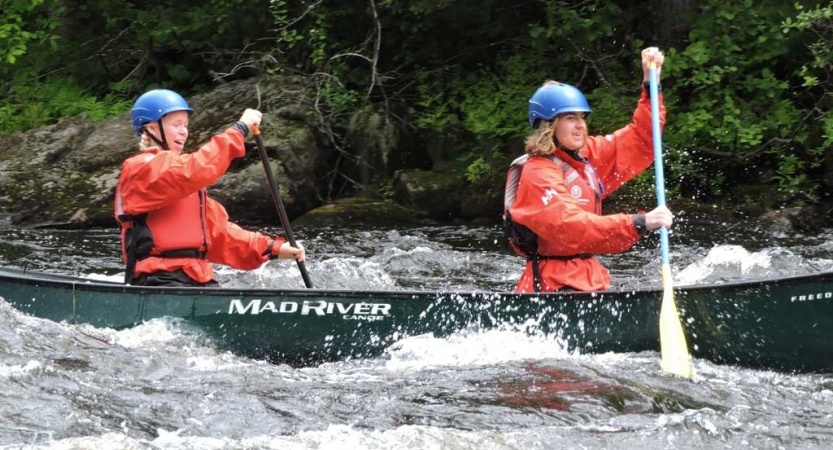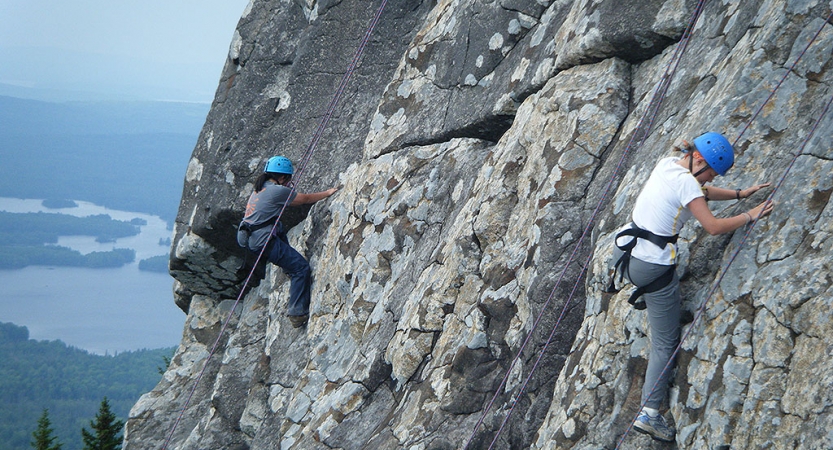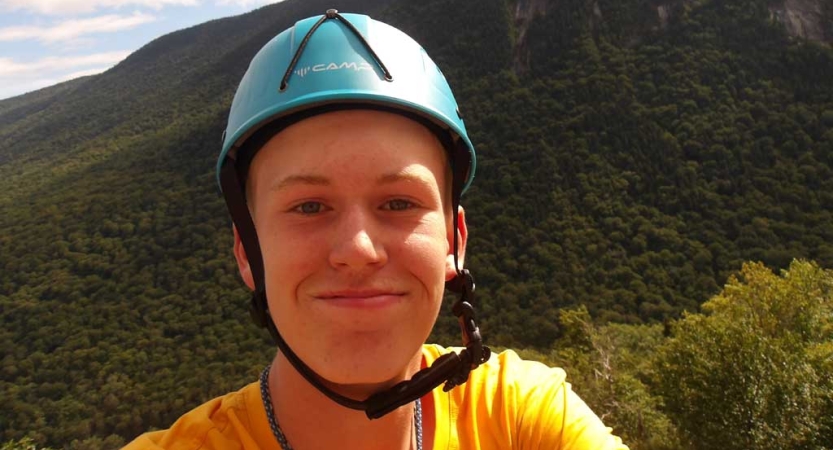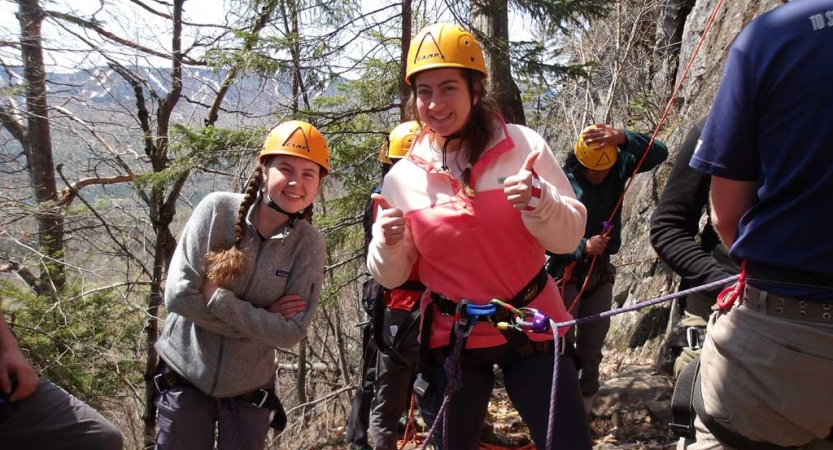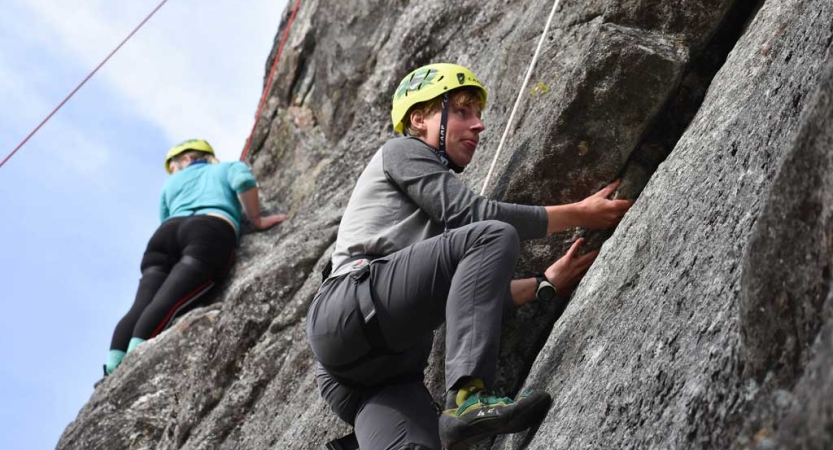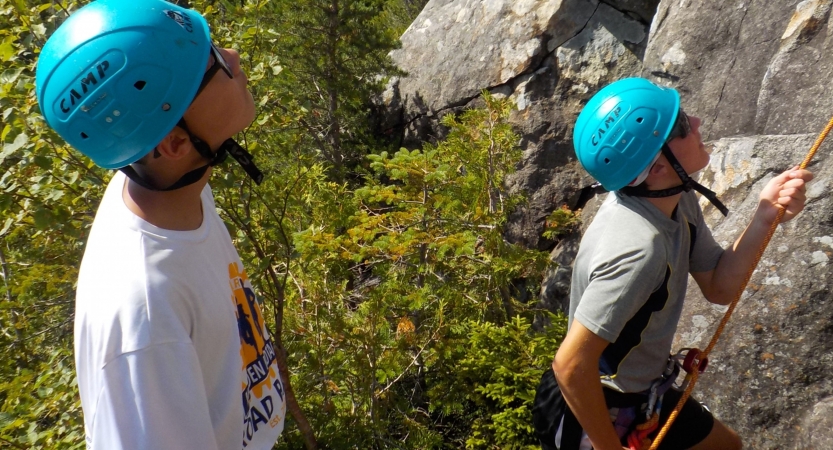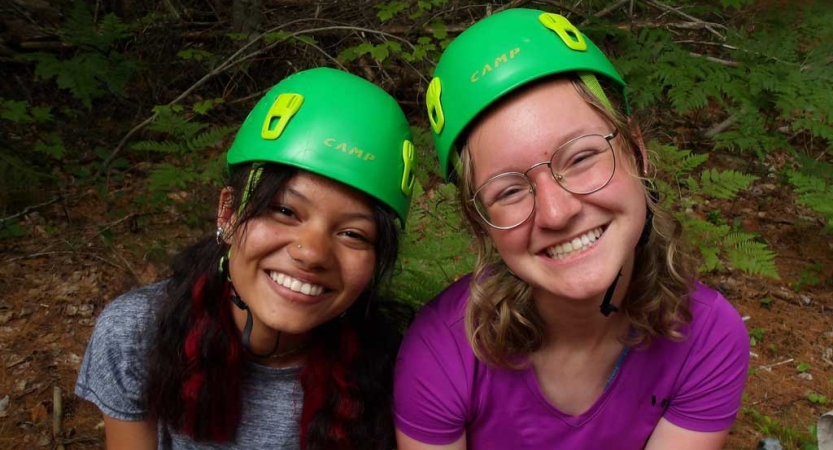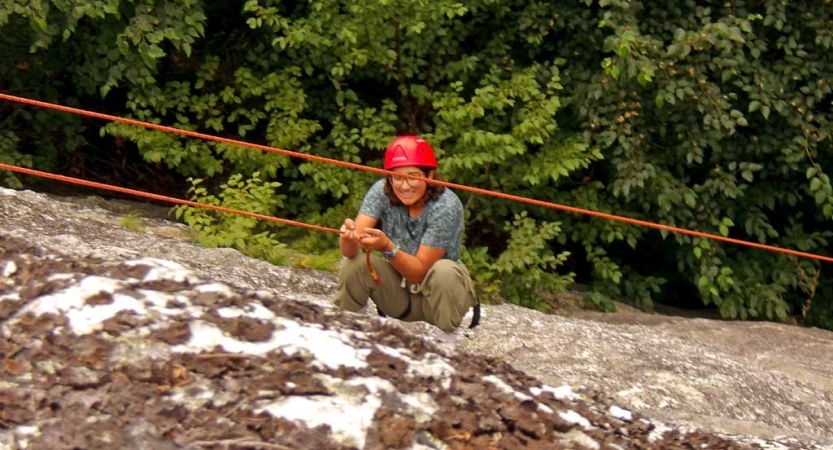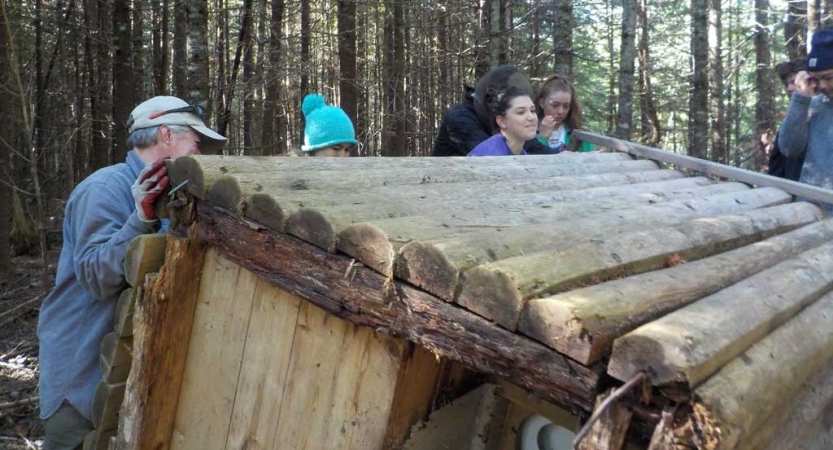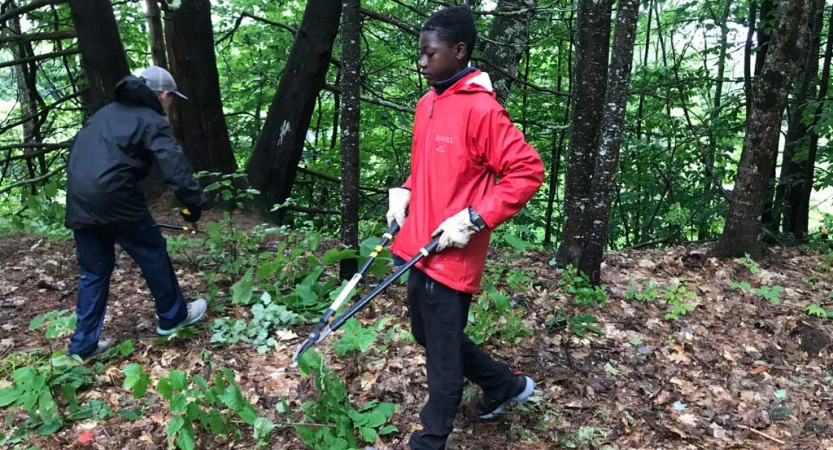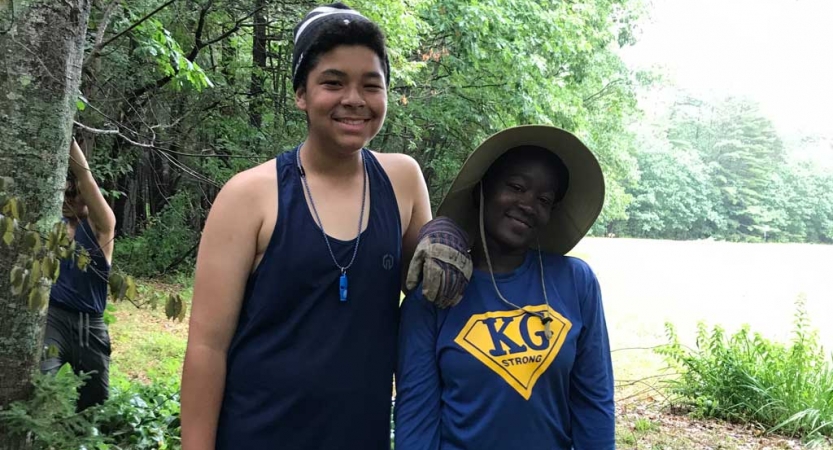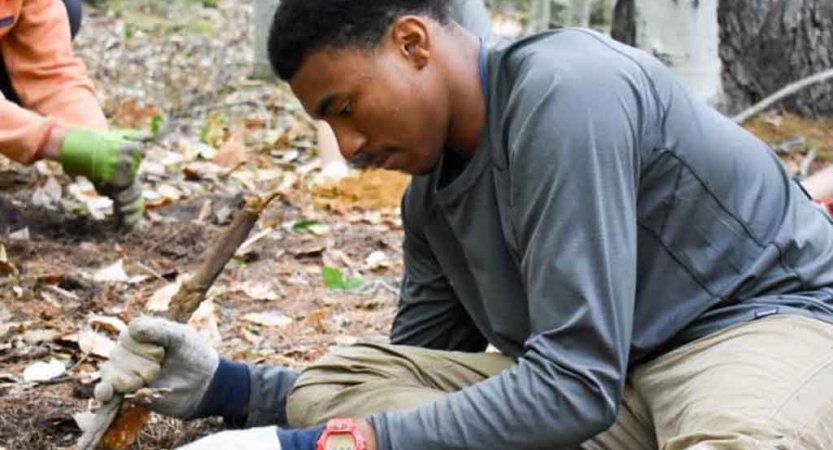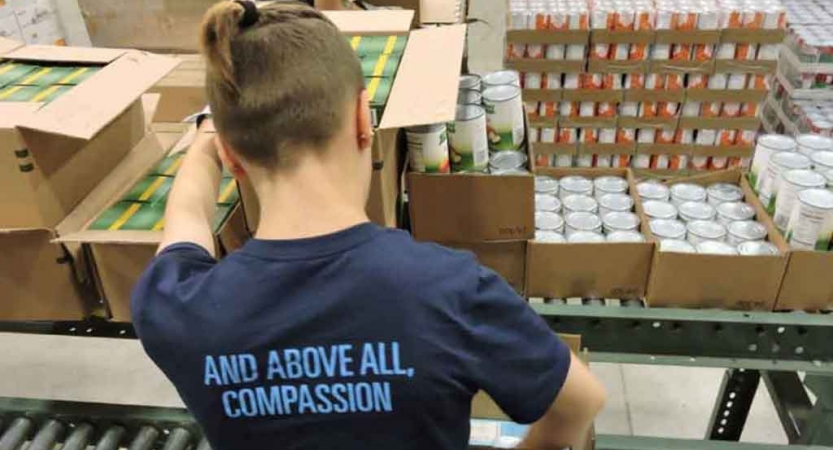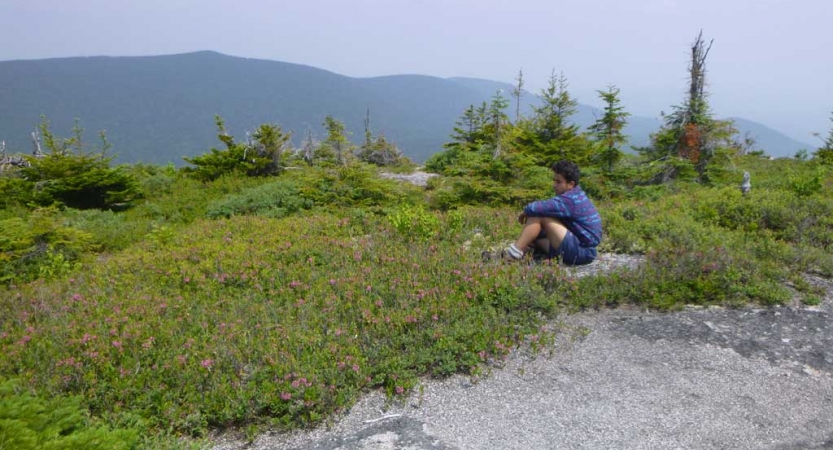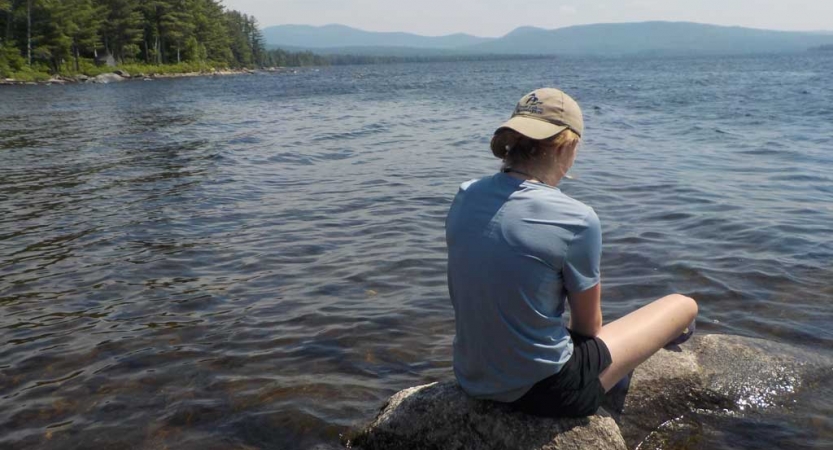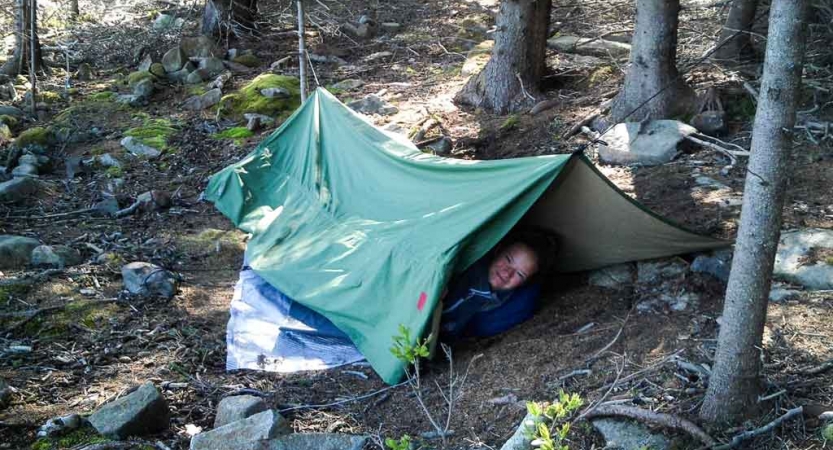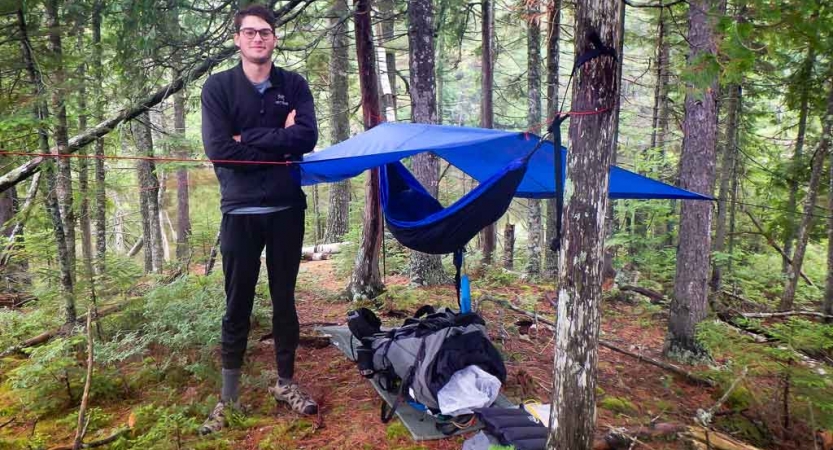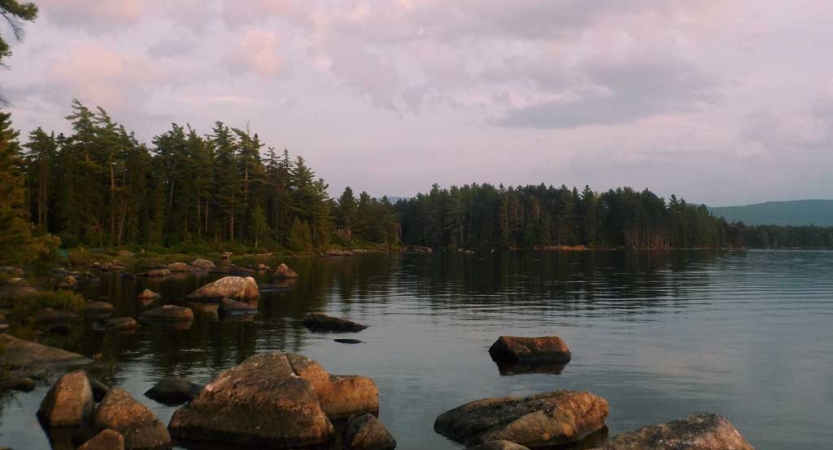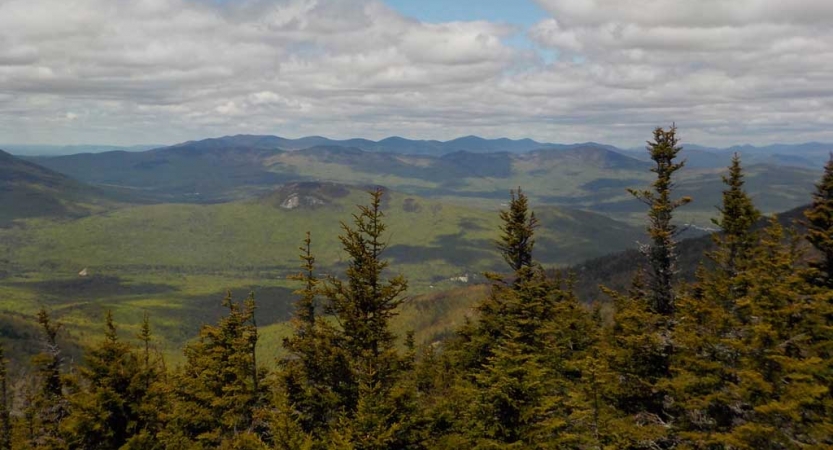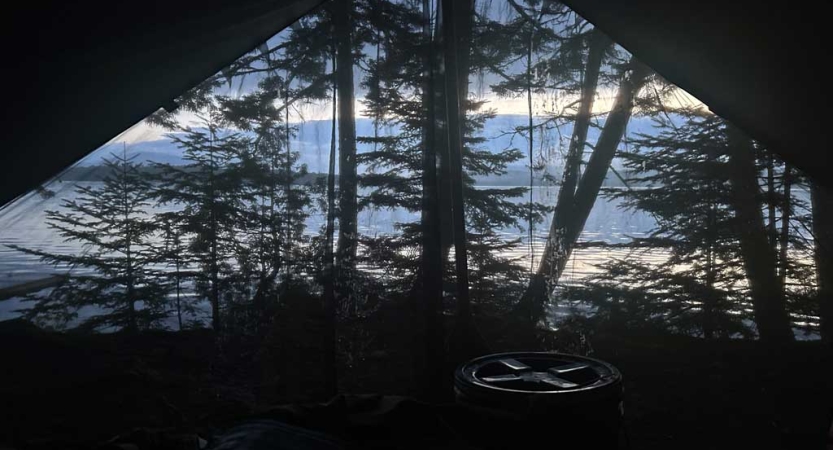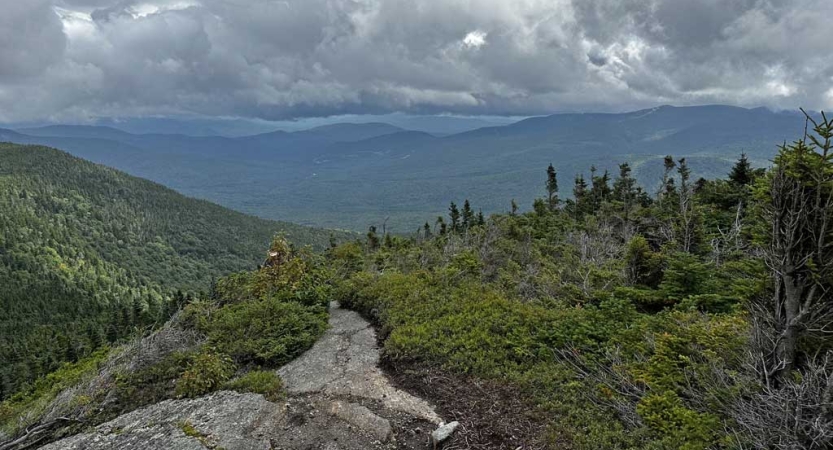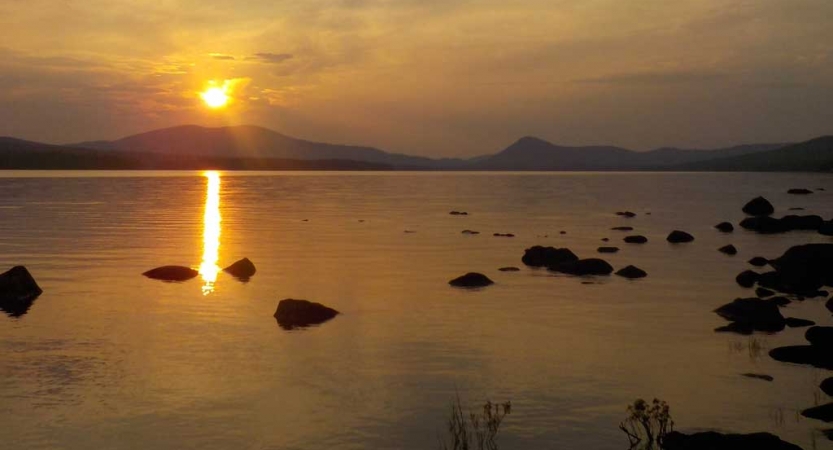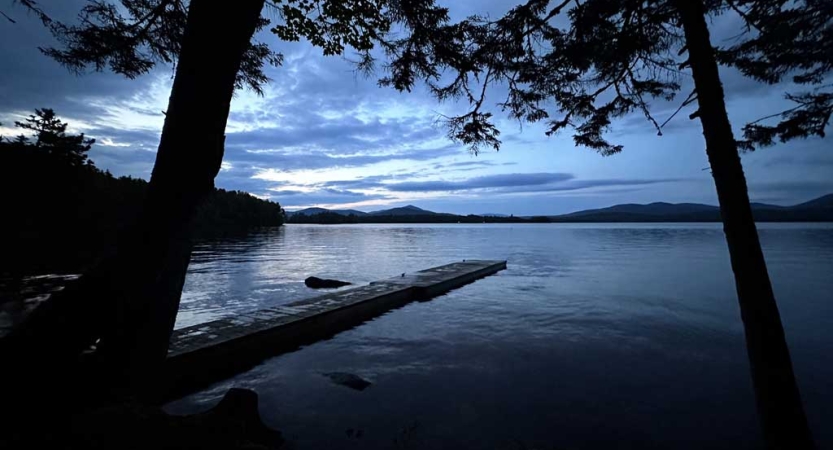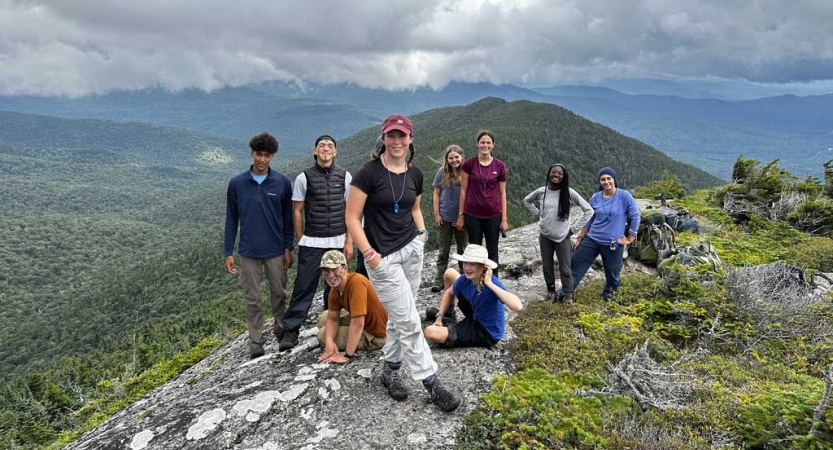-
EXPEDITIONS
-
Joshua Tree Backpacking & Rock Climbing
-
Boundary Waters Dog Sledding & Cross Country Skiing
-
Costa Rica Backpacking & Surfing
-
Boundary Waters Canoeing for Adults
-
Blue Ridge Mountains Backpacking & Rock Climbing for Adults
-
Joshua Tree Backpacking for Adults
-
Boundary Waters Dog Sledding & Cross Country Skiing for Adults
-
Pathfinder Southwest Canyoneering & Rafting
-
Pathfinder Blue Ridge Mountains Backpacking, Whitewater Canoeing & Rock Climbing
-
Pathfinder Rocky Mountains to Canyonlands
-
Blue Ridge Mountains to Florida & Patagonia Leadership Semester
-
Canyonlands to Joshua Tree Leadership Semester
-
Patagonia to Florida & Blue Ridge Mountains Leadership Semester
-
Costa Rica and Panama Leadership Semester
-
Blue Ridge Mountains Backpacking & Rock Climbing for Families
-
Ten Thousand Islands Canoeing for Families
-
Ten Thousand Islands Sea Kayaking for Veterans
-
Blue Ridge Mountains Backpacking & Rock Climbing for Women Veterans
-
Ten Thousand Islands Canoeing for Veterans
-
Backpacking
-
Canoeing
-
Canyoneering
-
Dog Sledding
-
Mountaineering
-
Rafting
-
Rock Climbing
-
Sailing
-
Sea Kayaking
-
Service
-
Snow and Ice
-
EXPEDITION FINDER
CLASSIC FOR MIDDLE SCHOOL
FEATURED CLASSIC FOR MIDDLE SCHOOL
CLASSIC FOR MIDDLE SCHOOL OVERVIEW CLASSIC FOR HIGH SCHOOLFEATURED CLASSIC FOR HIGH SCHOOL
FEATURED CLASSIC FOR ADULTS
FEATURED PATHFINDER
FEATURED SEMESTER
FEATURED OUTDOOR EDUCATOR
OUTDOOR EDUCATOR OVERVIEW INTERCEPTFEATURED INTERCEPT
INTERCEPT OVERVIEW AFFINITY GROUPSFEATURED AFFINITY GROUPS
FEATURED VETERANS
FEATURED ACTIVITIES
FEATURED SCHOLARSHIPS & ACADEMIC CREDIT
SCHOLARSHIPS & ACADEMIC CREDIT OVERVIEW PLANNING COMMUNICABLE DISEASE PRACTICESFEATURED COMMUNICABLE DISEASE PRACTICES

Program Overview
Skills
- Basic Paddle Strokes
- Belaying a Climber
- Campcraft
- Constellation Identification
- Food Preparation and Cooking
- Knots
- Map and Compass
- Navigation
- Rappelling
- River Reading
- Safety and Risk Management
- Self Care
- Character
- Communication
- Empathy
- Independence
- Leadership
- Positive Risk Taking
- Problem Solving
- Resilience
- Responsibility
- Self Awareness
- Self Confidence
- Service
Let’s Connect!
Maine Appalachian Backpacking & Canoeing
Spend 15 days in mountains, lakes and rivers, camping and traveling through the unforgettable wilderness of Maine.
Maine Appalachian backpacking and canoeing expeditions explore the remote stretches of the northern Appalachian Mountain range, Flagstaff Lake and the Bigelow Preserve, the Rangeley Lakes, and/or the Moosehead region of Maine’s Northwoods. This classic New England journey is an opportunity for those seeking a fresh challenge in a unique wilderness environment and an intense team setting. Instructors will introduce you to beginning, intermediate, and advanced skills in mountain navigation, paddling technique, woods craftsmanship, weather observation, and campsite selection as you live with and rely on your group and what you can carry on your backs. Regular group discussions allow for reflection on each day’s progress and ensure that leadership and responsibilities are shared so that every crew member is integral to planning the next day. Through living and working closely together, your group will practice more than wilderness travel skills. The habits learned and strengthened through this backpacking and canoeing expedition will serve you for life, and for whatever challenge is next.
Program Overview
Skills
- Basic Paddle Strokes
- Belaying a Climber
- Campcraft
- Constellation Identification
- Food Preparation and Cooking
- Knots
- Map and Compass
- Navigation
- Rappelling
- River Reading
- Safety and Risk Management
- Self Care
- Character
- Communication
- Empathy
- Independence
- Leadership
- Positive Risk Taking
- Problem Solving
- Resilience
- Responsibility
- Self Awareness
- Self Confidence
- Service
UPCOMING COURSES
This course is closed for the season.
APPLY NOW
This means a course has several open spots and is actively processing applications.
APPLY NOW – Almost Full
This means there are three or fewer currently available spots left on a course. To secure your spot click Apply Now to begin an application!
JOIN WAITLIST
Once a course has reached capacity, three waitlist positions become available. To join a course’s waitlist, click “Join Waitlist” to begin the application process. A $500 deposit is required. This $500 deposit includes a $150 non-refundable application fee and a $350 tuition payment. The $350 tuition payment is refundable only if you cancel your waitlist application or if an open position does not become available. If a position does become available, the applicant will be applied to the open position and the Application and Cancellation Policies of the Regional Outward Bound School will be followed, including forfeiture of the $500 deposit if you cancel 90 days or less prior to the course start date.
Waitlist applicants are encouraged to complete all required admissions documents while awaiting an open position. Positions may become available up to two weeks prior to the course start date. Applicants may only apply to one course. We recommend applying to a course with open positions instead of a course that is accepting waitlist applications. If you have questions, please call 866-467-7651 to speak with one of our Admissions Advisors.
CALL TO APPLY
This means a course is very close to its start date. Although it is unlikely to secure a spot this late, you can call the National Admissions office at 866-467-7651 to discuss your options.
COURSE IS FULL
When a course has reached maximum capacity, meaning all spots and the three waitlist spots are occupied, a course will read “Course Is Full.” This means applications are no longer being accepted.
CLOSED
As a course nears its start date, the availability status may read “Closed.” In this event, a course roster has been finalized and applications are no longer being accepted or processed.
This course starts in . Are you sure you would like to proceed?
I never realized how important it would be for me to accomplish all the things I have on this trip. From the start, you knew how scared and nervous I was, yet you kept pushing me to go out of my comfort zone. I’ve come to realize that to learn new things and grow in meaningful and important ways, everyone must go out of their comfort zone, like I did. I hiked the 3rd tallest mountain in Maine with a 55-pound backpack… I never believed that I could do something like that. I sold myself short. Now I know how strong I am, how simple life can be, and how to enjoy it. I can’t wait to see what the years ahead will bring.
Make new friends, sleep under the stars, and learn skills for outdoor adventure. Outward Bound’s Classic expeditions are designed to empower middle and high school students with the tools and confidence they need to navigate life’s ever-changing tides. By taking on challenges outdoors, students discover their strengths, make meaningful connections and return home with the skills needed to embark on bold futures.
- Develop Connections. Bond with your crew by having fun and engaging in meaningful conversations.
- Learn Outdoor Skills. Cook delicious meals outside, navigate with a map, and build a backcountry campsite.
- Practice Leadership and Teamwork. Learn to be both a leader and team player.
- Build Confidence that Lasts a Lifetime. Discover your unique strengths.
Backpacking is an ideal combination of team and individual elements. The mountains of Maine are jagged and densely wooded, and the trails are remote, narrow and often steep. Students travel on wilderness footpaths, navigating on and off trails throughout the journey. On clear days, the group is rewarded with spectacular views from atop mountain peaks. Living and traveling with just a backpack is a simple existence, in which small choices can make deceptively great differences. To live well in the wilderness, all crew members must share the chores that turn a camp into a home, including setting up tents and tarps, creating a kitchen area, taking turns fetching water and cooking satisfying meals.
Wilderness canoe expedition skills are the mark of a New England outdoors person. In the foothills of Maine’s mountains are networks of remote lakes and rivers. Students learn to maneuver canoes using paddle strokes such as the sweep, draw, pry and J-stroke. To get from one waterway into another, students portage (carry the canoes on their shoulders) and line (guide the loaded canoe down the sides of rapids that the crew isn't able to run). In learning to work, communicate, and coordinate efforts as paddling partners each day, students discover the power of truly working together.
Among the mountains of Maine are rocky crags that offer beginning, intermediate and challenging rock climbing. After learning to use climbing equipment, tie knots and belay each other, students test their balance, control and mental strength on the vertical rock faces nearby. In addition to stretching the limits of what they think they’re capable of, climbing hones their coordination, flexibility and grace on the rock. Depending upon the expedition route, technical rope activities may include a “via ferrate” or “Tyrolean traverse.” Climbing presents many individual challenges for students, while the team must work together to set systems up, communicate clearly and support each other throughout the climb.
Service projects are often incorporated into Outward Bound courses through coordination with local land managers, conservation groups, and government or social service agencies. While in the wilderness, students are encouraged to practice service to the environment and their team by sharing responsibilities and following Recreate Responsibly ethics throughout the expedition.
The Solo experience provides an important break from the rigors of the expedition to give students quiet time to reflect on the Outward Bound experience. With the basics of food and equipment, and with safety a top priority, students will take some time away from the group to be alone at sites of their own, using the wilderness skills learned during the first parts of the course. Often located along beautiful lake shorelines or peaceful rivers, Solo sites are chosen to offer as much solitude as possible (yet be within emergency whistle-signaling distance of other group members). Most students spend their Solo time journaling, drawing or just thinking and resting as they process lessons learned and focus on their goals for the future. Instructors check on each participant at regular intervals. The time students spend on Solo depends on the length of the course. On courses longer than three weeks, Solo is up to 72 hours long.
Students in high school are undergoing many changes. At the beginning of the high school experience, it’s an exciting time for seeking freedom and how to shoulder new responsibilities as they get closer to becoming an adult. As teenagers enter the final years of high school, it’s more about transition, developing learning, and gaining life skills while preparing for what’s next – be it college, a career, or a gap year adventure. To get ready for increased independence, older teens must be impelled to step up and make choices that have real consequences for themselves and others, with the support and supervision of knowledgeable and compassionate adults.
Outward Bound Instructors on high school courses specialize in coaching students to meet challenges and make good decisions, both independently and as a group. Students need only to be physically fit and motivated to learn and work together. No previous wilderness experience is necessary—all travel and leadership skills are taught from the beginning, and each phase of the expedition builds on the previous one. The impact of a three-week course is more than 50% greater than a two-week course because of the deeper degree of transferable learning, so students are encouraged to take the longest course that will fit into their life as the initiative, teamwork and problem-solving skills they take away from their course will help them reach any horizons they strive for.
The mountains of western Maine and northern New Hampshire comprise the northern end of the Appalachian Mountain range. Within this region, the White Mountain National Forest, the Appalachian Trail, the Carter-Mahoosuc Range, the Hundred-Mile Wilderness, the Grafton Loop Trail, Bigelow Preserve, and the Caribou-Speckled Mountain Wilderness all offer classic backpacking terrain. These spruce-fir and hardwood forests are home to hundreds of species of birds as well as moose, deer and black bears. Rushing waterfalls, clear twisting streams, and spectacular views from rocky summits reward backpackers ready for adventure.
The upper reaches of the Androscoggin, Penobscot, Kennebec, and Allagash, and/or Upper Dead River watersheds, which are fed by Moosehead Lake, Flagstaff Lake, and the Rangeley Lakes. Indigenous Abenaki peoples used these waterways as both a means of transportation between winter habitats inland, summer living on the coast and as a source of food. The great rivers of Maine were used to move logs to mills downstate during the logging boom of the nineteenth century. These days the lakes and rivers are used primarily by canoeists, fishermen and other recreationalists. Some of the portage trails here, such as along the Rapid River, have been in use for centuries. These regions are the ancestral lands of the Wabanaki Confederacy, which includes Abenaki/Abénaquis, W∂last∂kwiyik (Maliseet), Penobscot, and Passamaquoddy nations.
Course Stories
I never realized how important it would be for me to accomplish all the things I have on this trip. From the start, you knew how scared and nervous I was, yet you kept pushing me to go out of my comfort zone. I’ve come to realize that to learn new things and grow in meaningful and important ways, everyone must go out of their comfort zone, like I did. I hiked the 3rd tallest mountain in Maine with a 55-pound backpack… I never believed that I could do something like that. I sold myself short. Now I know how strong I am, how simple life can be, and how to enjoy it. I can’t wait to see what the years ahead will bring.
OTHER COURSES YOU MAY LIKE


Joshua Tree Backpacking & Rock Climbing
Courses: 3 dates available Ages: 14-16 , 16-18 Length: 7 Days Cost: $2,425 - $2,540 Details & Dates

Costa Rica Backpacking & Surfing
Courses: 1 date available Ages: 14-16 , 16-18 Length: 7 - 12 Days Cost: $2,990 - $4,750 Details & Dates

Boundary Waters Dog Sledding & Cross C...
Courses: 1 date available Ages: 16-18 Length: 8 Days Cost: $3,200 Details & Dates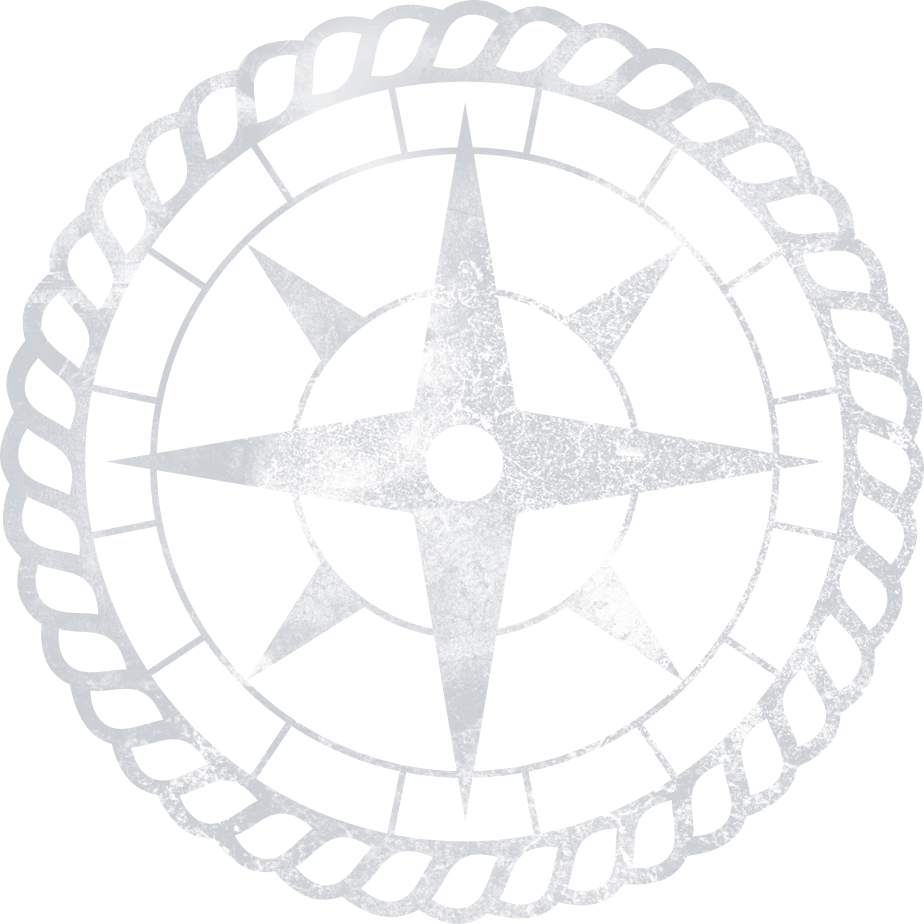
Getting Started
If you are ready to enroll on a course click the enroll button next to the course you wish to select or you can enroll over the phone by speaking with one of our Customer Success Specialists (toll-free) at 866-467-7651.
To secure your spot on a course you must submit an enrollment form and $500 deposit that is applied toward the total cost of the course and includes a $150 non-refundable enrollment processing fee.


